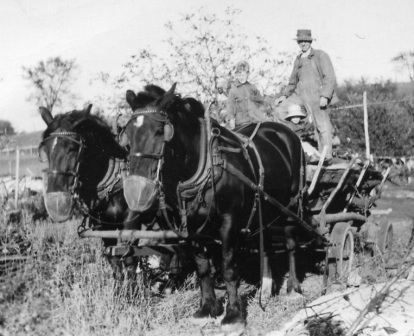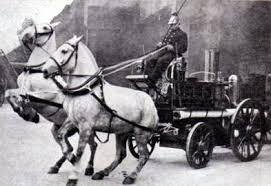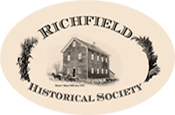Horsepower
In the 1890’s the type or breed of horse depended on the owner’s preference. Purebred Belgians and Percherons were rare, but mongrel farm horses were  plentiful in Wisconsin. Black, gray, white, brown, bay, chestnut, they varied not only in their color, but also in intelligence and willingness to pull loads. On the farm they would pull plows seeders, mowers and binders. Hay wagons and manure spreaders. Bringing the farm produce to market and the grain to the mill and the family to church on Sundays.
plentiful in Wisconsin. Black, gray, white, brown, bay, chestnut, they varied not only in their color, but also in intelligence and willingness to pull loads. On the farm they would pull plows seeders, mowers and binders. Hay wagons and manure spreaders. Bringing the farm produce to market and the grain to the mill and the family to church on Sundays.
To think that this was a time of leisurely pace and safety would be wrong. Far from it. A horse could “spook” easily and take off at a fast clip, causing injury, death and property damage. Roads were of poor quality. Muddy when wet, full of stones, roots, holes and horse manure. Tree branches could break and fall unexpectedly into the road. Carriages could flip on the unevenly graded roads. And the narrow bridges over the many small rivers creeks presented a hazard.
The cities were even worse; they teemed with horses. People went to work and did their errands on horseback, dodging carriages of all kinds. Delivery  wagons, fire engines, ambulances, cabs and private carriages. Police patrol men, peddler’s carts and pedestrians. The streets were clogged and there were many public stables, blacksmith shops, hitching post, watering troughs and lot of horse manure. The abundance of manure was a worldwide problem. In 1894, the London Times estimated that the city could expect to be buried nine feet deep in manure by 1950. Farmers used to pay good money to buy manure as fertilizer for their fields, but due to the increased horse population, people had to pay to get rid of it. The million dollar wooden wagon industry at Milwaukee went into a steep decline after 1915. By 1916 it was necessary to install the first traffic signal. In 1920 there was one automobile for every two families in the cities. A decade later most farmer had replaced the horses with a tractor.
wagons, fire engines, ambulances, cabs and private carriages. Police patrol men, peddler’s carts and pedestrians. The streets were clogged and there were many public stables, blacksmith shops, hitching post, watering troughs and lot of horse manure. The abundance of manure was a worldwide problem. In 1894, the London Times estimated that the city could expect to be buried nine feet deep in manure by 1950. Farmers used to pay good money to buy manure as fertilizer for their fields, but due to the increased horse population, people had to pay to get rid of it. The million dollar wooden wagon industry at Milwaukee went into a steep decline after 1915. By 1916 it was necessary to install the first traffic signal. In 1920 there was one automobile for every two families in the cities. A decade later most farmer had replaced the horses with a tractor.

